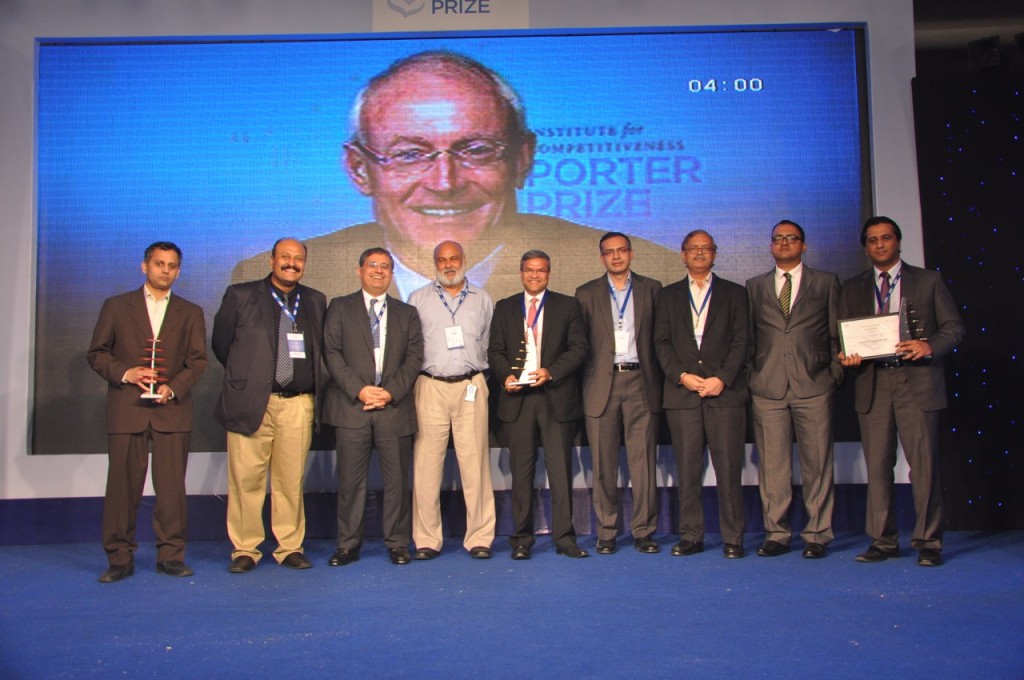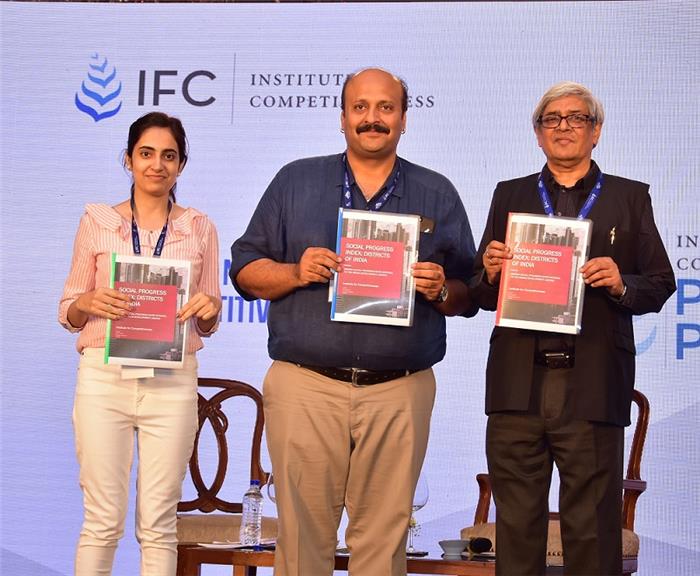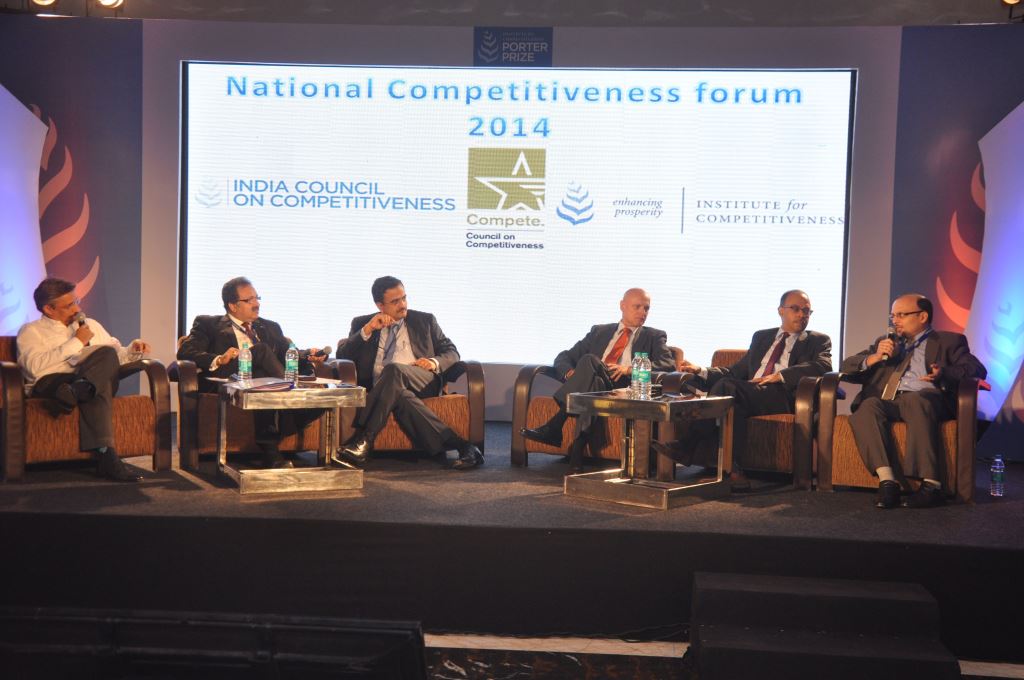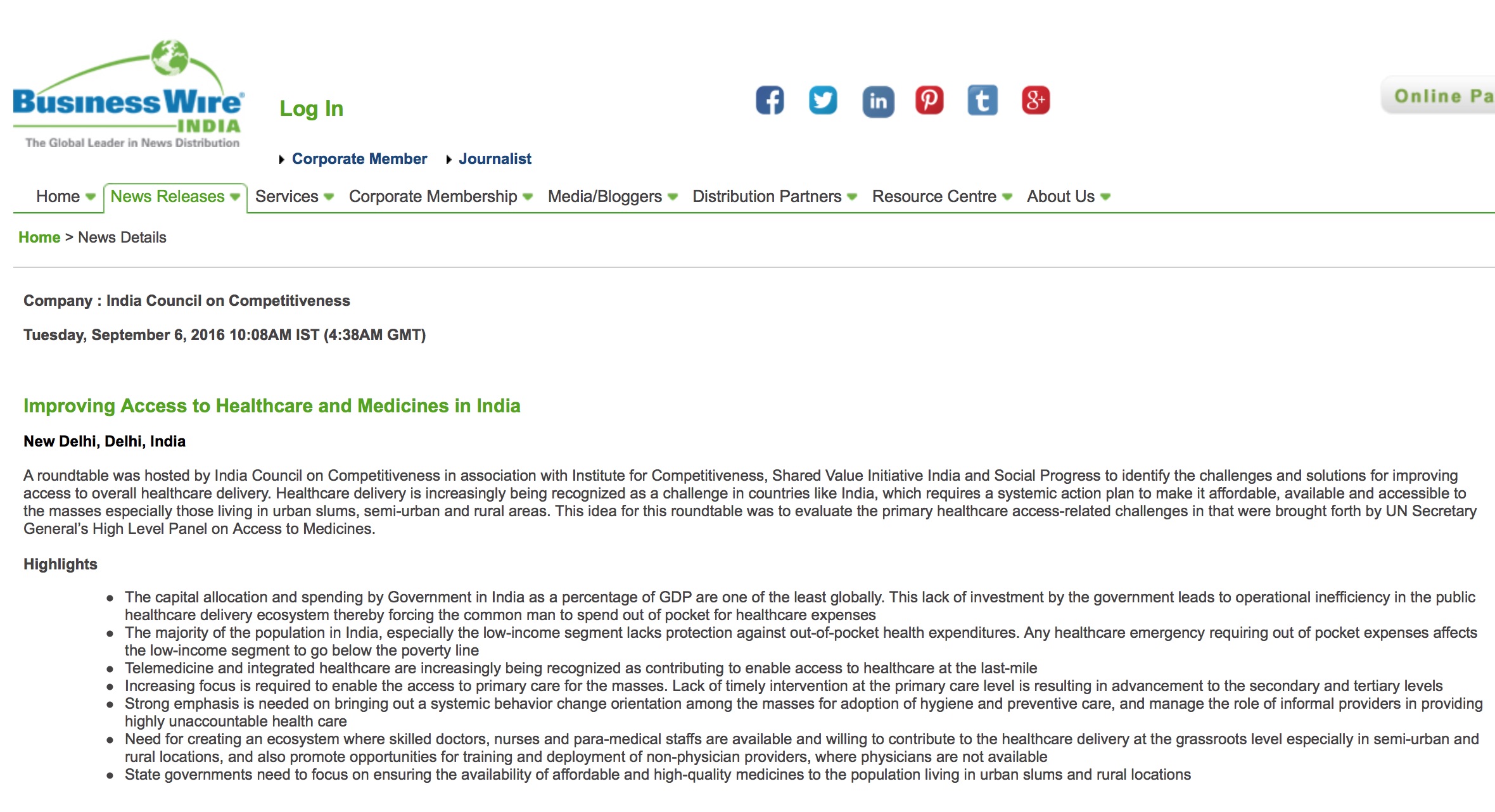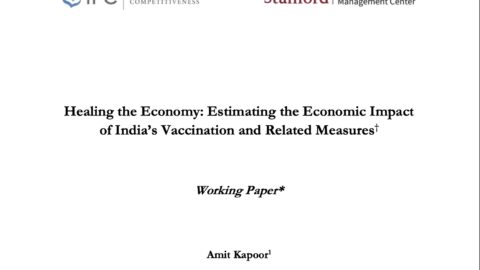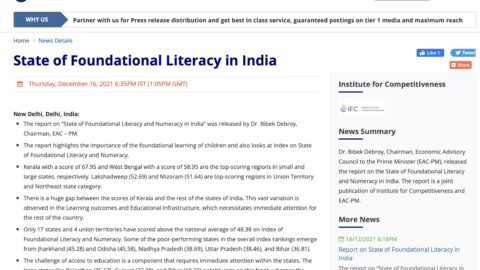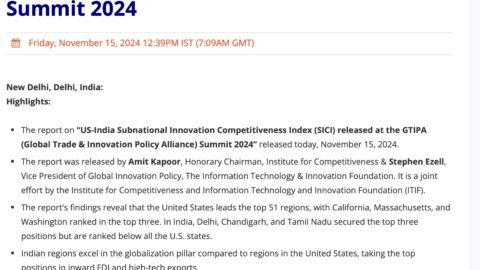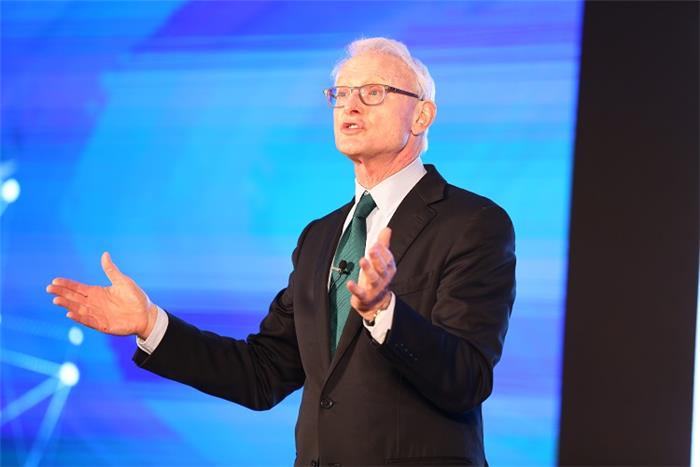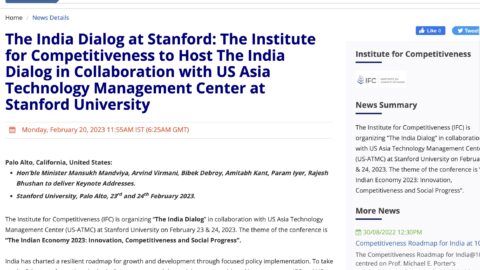Michael E. Porter addressed the Indian corporates in the prestigious Porter Prize 2012 awards held in Gurgaon, India
New Delhi, India, Friday, September 29, 2012
Highlights
- Much awaited Porter Prize initiated by Institute for Competitiveness, India was a huge success
- Overall seven companies, certainly the best companies in their industry were declared as winners in the six categories
- CXO’s and high profile corporates across the industries attended the event
- For the first time in Indian history, strategic acumen of corporates were awarded in India which is believed to have a positive impact at the performance of the overall industry
Porter Prize named after the renowned philosopher, thinker, Harvard faculty member and Father of the modern strategic field Professor Michael E. Porter was successfully held at The Leela Kempinski, Gurgaon on September 28, 2012. Dr. Amit Kapoor, Honorary Chairman, Institute for Competitiveness welcomed the Strategy Guru Michael E. Porter. Professor Porter addressed the Indian corporates and threw some light on the Indian Industry and its competitiveness. Awards were bestowed to the seven Indian companies, which emerged as the Porter Prize winners under the six categories. The companies that made it to the winner list are
- Bharti Airtel won the Porter Prize for Exploiting Trade-offs for making choices that made their strategy sustainable and because of which they were able to create barriers pertaining to emulation
- HDFC life won the Porter Prize for Leveraging Unique Activities for their effective rendering of activities across the value chain that gave them a competitive advantage
- Mahindra Finance won the Porter Prize for Creating Distinctive Value for offering unique solutions to their customers and effectively creating a new market spaces and segments
- Make My Trip won the Porter Prize for Industry Architectural Shift for redefining the industry structure by challenging the very basis of competition and creating new as well as effective business models
- Mother Diary and ICICI Lombard shared the Porter Prize for Creating Shared Value as both of them, created economic success by redefining markets, products and in creating societal and economic progress
- Vaatsalya won the Porter Prize for Value Based Healthcare for redefining the idea of patient care and fundamentally challenging the economic models within the industry
The event started with panel discussions on strategy and shared value. Many renowned CXO’s from different companies shared their views. Some of the prominent speakers were Yes Bank, Shreekant Javalgekar, MD & CEO, MCX, Anoop Prakash, MD, Harley Davidson, Vishesh Chandiok, National Managing Partner, Grant Thornton Advisory Private Limited, Sunand Sharma, Country President, Alstom, Siva Nagarajan, MD, Mother Diary, Bhaksar Chatterjee, DG & CEO, IICA, etc. Subsequently Pinak Ranjan Chakravarty, Special Secretary, Public Diplomacy Division, Ministry of External Affairs addressed the corporates.
Professor Porter delivered profoundly enlightening task on various connotations of strategy and its formulation. He built very logical and coherent thesis illuminating what strategy is and what strategy is not. Interestingly, he demonstrated by making choices every organization can come forth with unique value proposition and thus have a positive sum competition rather than zero sum. He illustrated through a lot of practical examples that being strategic entailed an ability to say no. He exhorted corporate to go beyond the traditional corporate social responsibility and really make impact untackling societal problems by building shared value business models which pay for themselves and are scalable. It was touching to hear him say that he is a friend of India and so genuinely feels concerned on slow business changes and on rising costs of business.
At the end of talk there was an interactive Question & Answer round – in fact nostalgic because a number of audience members happened to have been students, Professor Porter himself; Dr Porter readily recognized them. When queried that did he feel his five forces analysis propounded almost 3 decades back needed major revisiting, he squarely and convincingly stood by his model. On the issue of outsourcing he shared extensive analysis and action oriented initiatives at Harvard under the umbrella of US Competitiveness. He touchingly pointed that business is at times unfairly accused wherein touchingly pointed organizations actually gain through sensible outsourcing.
At the event, Sandip Das, CEO, Director Aircel & CEO Maxis Communications Berhad commenting on the process of Porter Prize said, “Rigorous cross dimensional analysis was done – it was figured out what capabilities are there and what need to be built. Thereafter we focused on having a product a week“.
Dr. Amit Kapoor, Honorary Chairman, Institute for Competitiveness, India expressed heartfelt thanks to Professor Porter for having the first Porter Prize award in India. Looking at the phenomenal contribution of Professor Porter in the field of strategy and competitiveness it was natural to call him the god of strategy. Dr Kapoor also thanks the entire Institute for Competitiveness family in having made the event successful through teamwork.
About the Institute for Competitiveness
Institute for Competitiveness, India is the Indian knot in the global network of the Institute for Strategy and Competitiveness at Harvard Business School. Institute for Competitiveness, India is an international initiative centered in India, dedicated to enlarging and purposeful disseminating of the body of research and knowledge on competition and strategy, as pioneered over the last 25 years by Professor Michael Porter of the Institute for Strategy and Competitiveness at Harvard Business School. Institute for Competitiveness, India conducts and supports indigenous research, offers academic and executive courses, and provides advisory services to the Corporate and the Governments. The institute studies competition and its implications for company strategy; the competitiveness of nations, regions & cities and thus generate guidelines for businesses and those in governance; and suggests and provides solutions for socio-economic problems.

